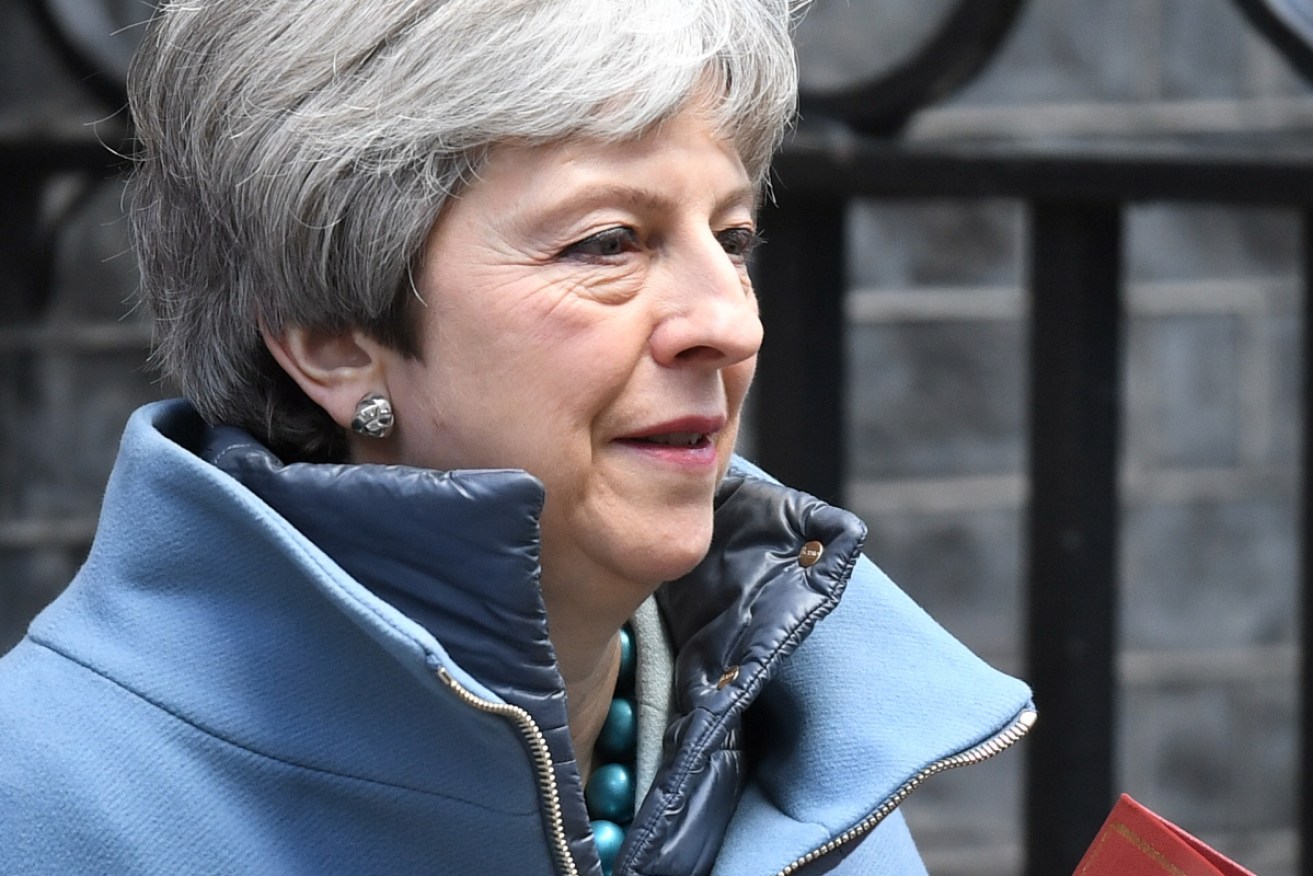A tiny political party has thrown Theresa May’s Brexit plans into disarray


Theresa May is facing increased pressure resign as she continues her attempts to pass a Brexit deal through parliament. Photo: Getty
Theresa May’s strategy for navigating one of the British parliament’s most important weeks in 79 years was derailed at the last minute by a party with less than one per cent of the support of UK voters.
The refusal of Northern Ireland’s Democratic Unionist Party to back the Prime Minister’s preferred plan for leaving the European Union prompted Ms May to back away from an expected vote on her plan, clearing the way for the House of Commons to make its own unpredictable bid to solve the Brexit impasse.
The stakes could hardly be higher, with some historians saying the House’s deliberations over the next few days on Brexit are its most weighty since May 1940, when a two-day debate on World War II ended Neville Chamberlain’s government and brought Winston Churchill to power.
At the 10 am Monday morning (local time) Cabinet meeting Ms May and her team agreed that on Tuesday they would try for the third time to get the MPs to back the withdrawal agreement that the PM has spent the past two and a half years negotiating with the EU.
Two hours later the DUP, the small, deeply conservative party created by the late Rev Ian Paisley, told Ms May it would not be backing her deal because it feared that it could leave Northern Ireland stranded under the control of EU trade rules.
At 3.30 pm Ms May told the House that she would not put her plan to leave on May 22 to a vote until she had won over more support, even though the other 27 EU member states were waiting anxiously to see the result of her promised third attempt to win approval for her deal.
“It is with great regret,” she said, “that I have had to conclude that as things stand, there is still not sufficient support in the House to bring back the deal for a third meaningful vote. I continue to have discussions with colleagues across the house to build support, so that we can bring the vote forward this week, and guarantee Brexit.”
Ms May then lashed out at the DUP, infuriating its leaders by claiming for the first time that one of the reasons she had not been able to go ahead with her original plan to leave the EU on March 29 was the failure of the DUP and its rivals in Northern Ireland to form a provincial government over the past two years, saying that left the region “unable therefore to prepare properly.”
The extraordinary power being wielded by the DUP needs to be placed in the context of its tiny position on the British political landscape.

Nigel Dodds, deputy leader of the Democratic Unionist Party, with Emma Little Pengelly, and Jeffrey Donaldson (right). Photo: Getty
In 2017, when Ms May broke her promise not to call an early election and went to the polls in the hope of strengthening her mandate for Brexit, she ended up losing her majority and relying for the first time in history on DUP support for control of Parliament.
The DUP had been backed by just 292,316 people, or 36 per cent of voters in Northern Ireland, which is equal to 0.9 per cent of the national vote, but that was enough to give it 10 MPs in Westminster that Ms May desperately needed.
A hefty 55.8 per cent of Northern Ireland voters opposed Brexit in the 2016 referendum but the pro-Brexit DUP, which had averaged less than a quarter of the vote in the previous five general elections, ended up with a massively disproportionate voice in Westminster.
Its anti-Brexit rival Sinn Fein won seven seats but never takes up its seats in the House of Commons and the only other seat from Northern Ireland went to an independent MP.
In recent months the rebel Conservative MPs who view Ms May’s deal as too soft a break from Brussels have looked to the DUP as the sole voice of Northern Ireland, site of the UK’s only land border with the EU.
Their stance has left Ms May unable to get the support of her own MPs until the DUP says it is comfortable with its impact on Northern Ireland.
That is why the DUP’s latest chorus of “No! No! No!” stopped Ms May in her tracks, opening the way for MPs who want to wrest control of the issue away from the government by holding a series of “indicative votes” to measure support for alternative plans, including even revoking Brexit or holding a second referendum.
Unable to stop those votes, Ms May warned Parliament that she would not feel bound by the results, but uncertainty reigned about when, how and even if the UK would be exiting the EU, leaving her Ministers horrified to see control of Brexit slipping away.
It is still highly unlikely that Brexit will be cancelled altogether, but one minister, Mark Field, the Foreign Minister with responsibility for Australia and Asia, on Monday became the first member of Ms May’s Government to say that if she fails to win over enough MPs to endorse her withdrawal agreement he would swing right around and vote to revoke Brexit.
Mr Field’s dramatic turnaround could have been influenced by two events in recent days which highlighted the passionate opposition to Brexit of many voters.
On Saturday his electorate was the site of the biggest ever anti-Brexit march, which saw a million people clog the streets of Westminster.
And by Monday afternoon more than 5,500,000 people had signed a parliamentary online petition to stop Brexit, an unprecedented number which included one in five people in Mr Field’s own electorate.








